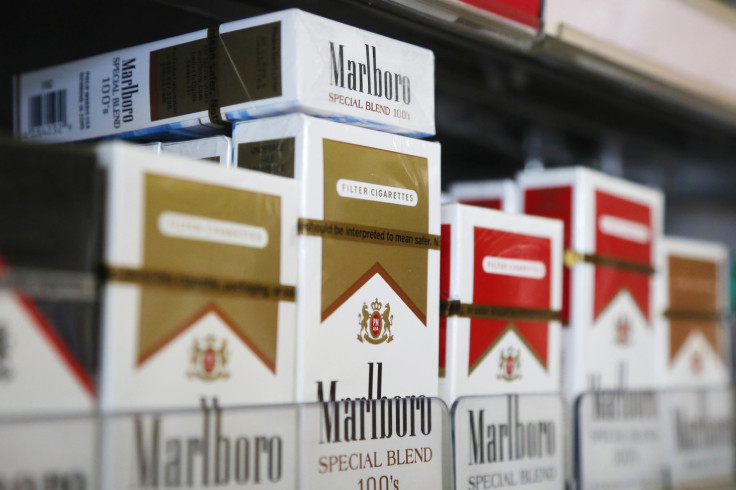15% Of NYC Cigarettes Are From Out Of State, Which Throws A Wrench In The City's Stop Smoking Initiative

New York City has made significant changes to help reduce the number of its inhabitants who smoke in recent years. Unfortunately, as many people know, getting a smoker to quit is no easy task. An investigation conducted by public health researchers from NYU has found that 15 percent of cigarettes being sold in NYC are marked with either counterfeit or out-of-state tax stamps.
"Our research found that illegal cigarettes are regularly available over the counter in New York City," said study author Diana Silver, associate professor of public health at NYU's Steinhardt School of Culture, Education, and Human Development and College of Global Public Health, in a statement. "Taxes on packs sold with counterfeit or out-of-state tax stamps are not being recouped by the city and the state."
Silver and her colleagues monitored the sale of illegal cigarettes at various chain and independent retailers throughout all five boroughs by purchasing 830 packs between the spring and fall of 2014. Back at the end of 2013, NYC set its minimum price for cigarettes at $10.50, making it $1.67 higher than the rest of New York State. A laser detection device provided by the New York City Sheriff’s office was used to determine which tax stamps were counterfeit or out-of-state.
Out of 830 cigarette packs, 125, or 15 percent, were marked with either counterfeit or out-of-state tax stamps. Just over 10 percent of the packs were deemed counterfeit, while the remaining 4.5 percent carried Virginia tax stamps. Virginia’s cigarette excise tax of 30 cents per pack is the second lowest in the country and the state does not have a minimum legal price for cigarettes. The number of illegal packs purchased by investigators increased from the spring to the fall of 2014.
"Consumers may be unaware they are purchasing illegal cigarettes, since, at least in our study, clerks sold our investigators these cigarettes at full price," Silver said. "While cigarettes that have been smuggled into New York City from other places may also be sold directly to consumers, our study demonstrates that retailers are selling these cigarettes throughout the city.”
This influx of illegal cigarettes isn’t even benefiting the bank accounts of smokers in NYC. Most of the illegal cigarettes purchased by the investigators were sold in compliance with the city’s minimum price law. The majority of illegal packs were purchased at independent retailers rather than chain stores.
"Our findings underscore the need for intensive monitoring, oversight, and support to help retailers comply with existing and new cigarette laws. The use of digital tax stamps, coordination of taxes across areas, and systematic monitoring of enforcement efforts could help to address the issues we uncovered," Silver said.
In spite of the city’s substantial efforts to reduce smoking rates, a 2014 investigation done by the New York City’s Health Department revealed that the number of smokers continues to rise. In fact, the number of NYC smokers has been on a steady incline after smoking rates dropped to a record low of 14 percent in 2010, reaching 16.1 percent in 2013 — the highest rate since 2007.
Source: Macinko J, Jimenez G, Bae J, Giorgio M, Silver D. Tobacco Control. 2015.



























